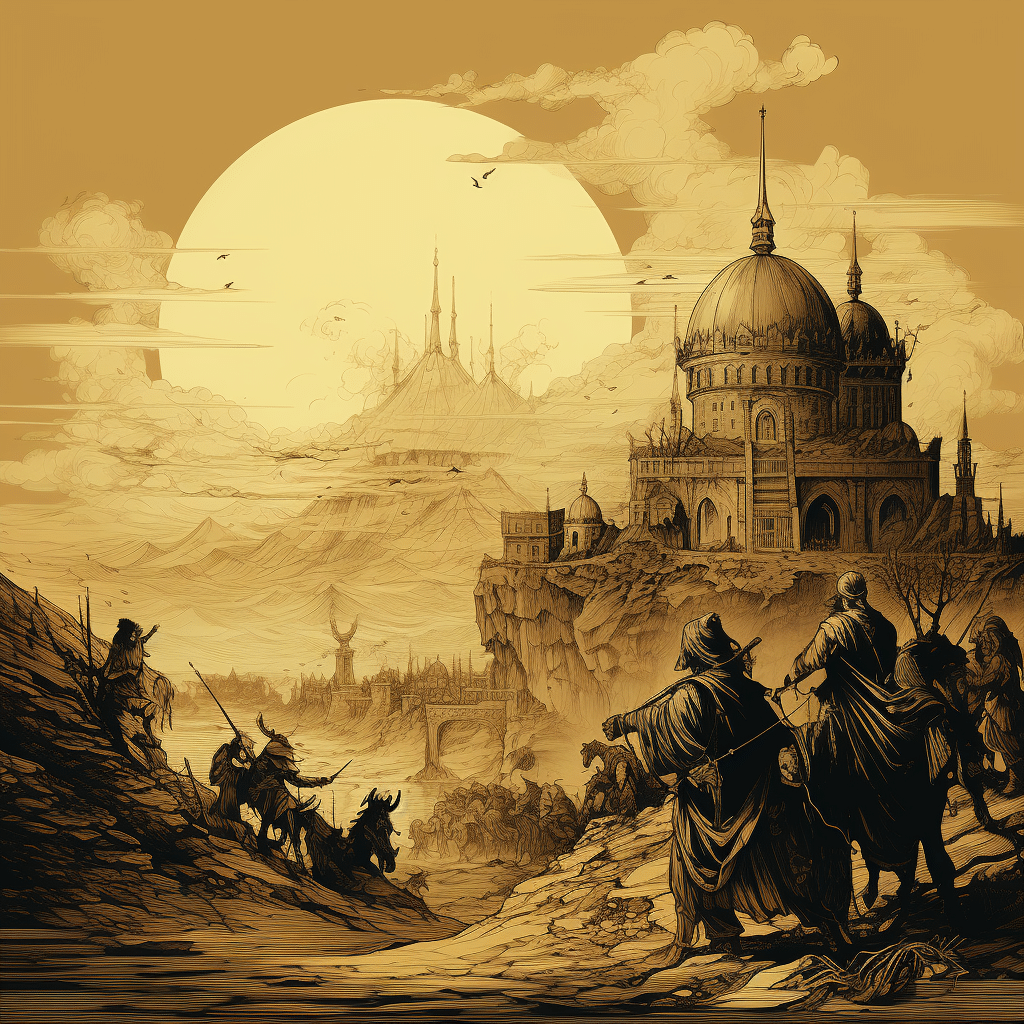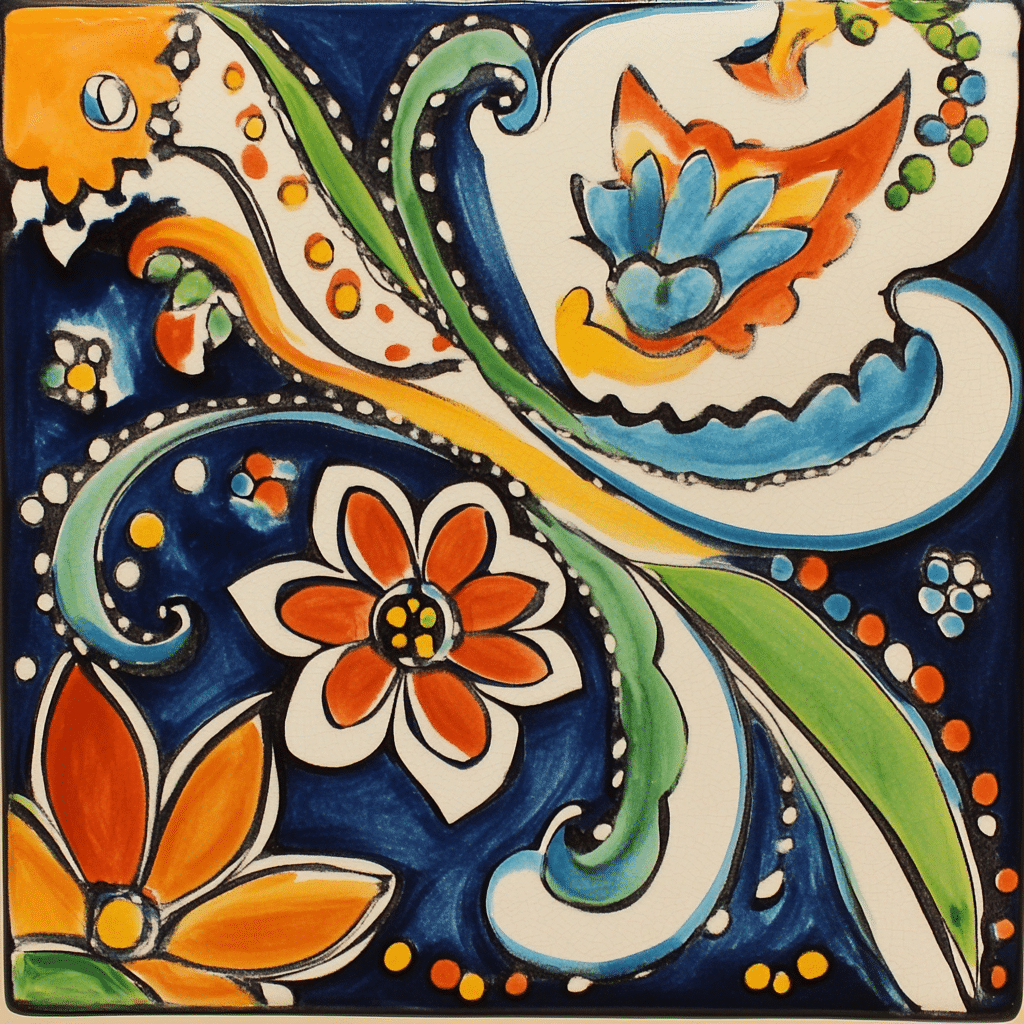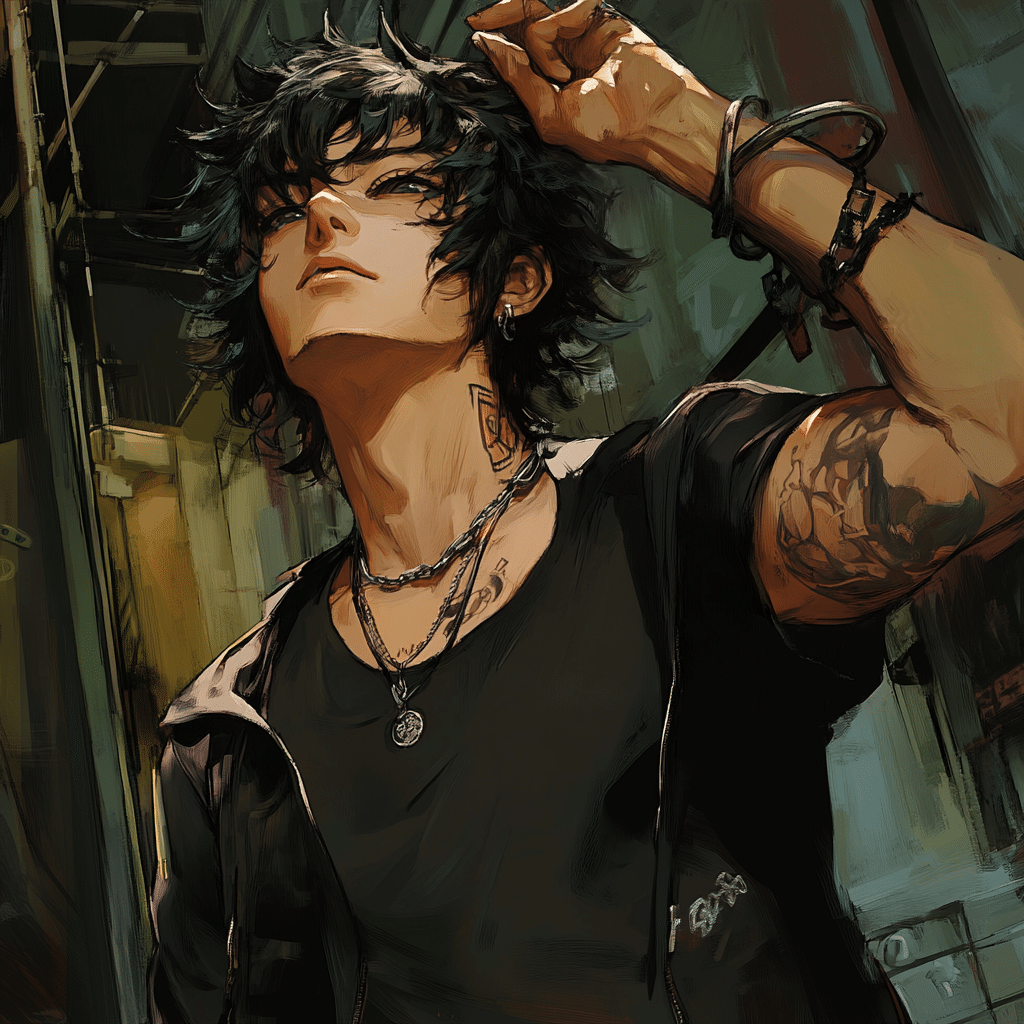Exploring the Jihad Definition: A Multifaceted Term
Jihad—a word that’s been tossed around like a hot potato in political debates, splashed across headlines, and sometimes even whispered with a chill. It’s got linguistic roots that dig deep into Islamic heritage, carrying a suitcase of historical perspectives. Now, let’s untangle the complexity of the ‘jihad definition’ for a hot minute.
It’s not just one-dimensional. Within Islamic scholarship, ‘jihad’ sparks a spectrum of interpretations, feeling kinda like trying to pin down a shadow. ‘Jihad’ literally translates to striving, or doing one’s utmost, showing that it’s not all about clashing swords—it’s about an inner, spiritual hustle as well. This is the ‘greater jihad,’ the real McCoy. It’s the internal struggle, duking it out with your lower self to polish that heart of yours, to sidestep evil, latch onto good, and level-up as a person.
Then there’s the ‘lesser jihad,’—the one that’s often a media darling. This refers to the armed struggle, but don’t get it twisted; it’s not just a free pass to conflict-ville. It’s got its own set of intricate rules and ethics that would give a lawyer a run for their money.
The Evolving Jihad Meaning in the 21st Century
Swing by the current scene, and you’ll see the ‘jihad definition’ doing somersaults. Modern times have remixed the concept somewhat, with the socio-political landscape turning it into an almost unrecognizable tune. Let’s dive in.
The global media—bless their hearts—often toss a bit of flavor to the term, painting the perception of jihad in broad, splashy strokes. But here’s a brain tickler: Not all Islamic pockets wave the same flag for jihad. From coffee-sipping scholars to street-savvy activists, jihad is being unwrapped, redefined, and debated in the halls of contemporary dialogue.

| Aspect | Definition / Description |
| Etymology | The word “jihad” originates from the Arabic root “j-h-d,” which means to strive or to struggle. |
| General Meaning | In a broad sense, Jihad means striving or struggling, particularly with a praiseworthy aim. |
| Greater Jihad | This is the spiritual struggle within oneself against sin. Greater Jihad is about self-improvement, overcoming one’s ego, personal growth, and moral discipline. |
| Lesser Jihad | Often understood as the external struggle against oppression and injustice; it can, at times, involve military efforts but is not limited to armed conflict and only as a last resort under strict conditions. |
| Theological Context | In Islam, Jihad is a complex concept with nuances depending on the context. It includes internal, social, and sometimes military aspects. It is meant to protect the faith and help others, not to aggress. |
| Misconceptions | “Jihad” is often incorrectly equated with “holy war”. The term for holy war is actually “harb muqaddasa,” which is not found in the Quran. Jihad has a broader concept inclusive of non-violent struggles. |
| Quranic References | The Quran refers to Jihad in many verses, often emphasizing struggle in the path of God (Allah). Specific verses include 2:190-194, which set conditions for warfare, and 25:52, which advocates striving hard in God’s cause with the Quran. |
| Scholarly Interpretation | Islamic scholars have written extensively on Jihad, often interpreting it as a call for spiritual and moral striving, with the Lesser Jihad being conditional and the Greater Jihad as a lifelong endeavor. |
Trivia and Interesting Facts: Unpacking ‘Jihad’
What’s in a Word: The Roots of ‘Jihad’
Ever heard of digging deep for Christmas spirit? Well, when it comes to diving into the roots of ‘jihad’, it’s a bit like unearthing the history behind the iconic Rockefeller Christmas tree.( Just like that tree has become more than its shimmering lights and towering height, ‘jihad’ has grown to encompass a spectrum of meanings, branching out from its original linguistic trunk.
You see, ‘jihad’ sprouts from the Arabic root ‘jahada,’ which literally translates to ‘to strive’ or ‘to struggle.’ While today’s media may have you picturing something straight out of a Narco blog,( the term’s more peaceful underpinnings are as essential as understanding the difference between a magnolia and an oak.
Not Just a One-Trick Pony
Who would’ve thought that ‘jihad’ could have a multidimensional role, kind of like a Swiss Army knife? It’s not just about physical combat—far from it! In fact, there’s this thing called the ‘Greater Jihad,’ which is all about the internal struggle to live a virtuous life—think personal battles against greed or overcoming laziness. If you’re imagining a monumental inner-battle launch, akin to a Nasa launch,( you’re on the right track.
A Modern Twist
Alright, let’s shoot the breeze about the contemporary gabfest on ‘jihad.’ Hold your horses, though—it’s not all doom and gloom! Today, the word is bandied about in various contexts, from social activism to environmental stewardship. Some folks are on a ‘jihad’ against single-use plastics—yep, that’s using the term in its sense of a crusade for a solid cause.
And here’s the kicker: despite the heavy clouds hanging over its interpretation, ‘jihad’ in its purest form continues to inspire millions to stand up for what’s right, much like those staunch defenders of free speech or the relentless advocates for peace and justice. Now, isn’t that something?
So, next time ‘jihad’ pops up in a chinwag, you’ll have more than just a one-liner to contribute; you’ll have a whole arsenal of trivia to dazzle your buddies with! Remember, knowledge is power—so wield it wisely, won’tcha?
Jihad through the Prism of Political and Social Realities
Politics, am I right? They’ve got their fingers in every pie, and the ‘jihad’ pie is no exception. States and non-state actors have been flipping the ‘jihad’ term like a pancake, using it as part of their arsenal of political strategies. It’s not just chit-chat; these words are a loaded gun, impacting regional conflicts from dusty deserts to buzzing cities.
Talking about case studies, you’ve got situations where ‘jihad’ is the war cry for some, and for others, it’s about self-defense or liberation. Social factors, like a sense of belonging or a quest for identity, can fuel the recruitment and mobilization of individuals under the ‘jihad’ banner, faster than you can say “sign me up!”

Debating Jihad: Legal Perspectives and International Law
Alright, legal eagles, let’s ruffle some feathers. International law has been scratching its head over how to deal with the ‘jihad’ conundrum. It can be like trying to nail jelly to a wall because each group’s got their own user manual for jihad.
Legal beagles debate the jabberwocky out of the definition and its global security waltz. It’s as if each one’s reading from a different script, and let me tell you, no one’s winning an Oscar for clarity here.
Counternarratives and Restoring Multidimensionality to Jihad
Hold onto your hats, because there’s a wind of change blowing. A bunch of big-brained Muslim scholars and their communities are on a mission to snatch back ‘jihad’ from the jaws of misinterpretation. They’re dishing out the OG version, sprinkled with peace and packed with soul-searching.
We’ve seen a rise in educational programs that cut through the chaos like a hot knife through butter, promoting a chill version of jihad. And hey, hats off to the interfaith convo that’s tossing the monolithic portrayal of jihad for a loop.
Media Portrayals and Public Discourse on Jihad
Ever noticed how the media’s playbook on ‘jihad’ can set the stage for public opinion? That’s powerful stuff. Films, literature, online platforms—they’re all scripting their versions of jihad. But watch out for the lurking stereotypes and biases, they’re sneaky little buggers that can wreak havoc on the real deal.
As much as we adore the silver screen, sometimes they play fast and loose with the facts—just ask the fans dissecting “Yellowjackets Season 2“. The series isn’t just a gripping tale; it’s an exploration of the fight for survival, a theme that, if you squint a little, is a distant cousin of the internal struggle tied to the ‘jihad meaning’.
Future of Jihad: Trends and Projections
Peek into the crystal ball, and experts are betting their bottom dollar on the evolution of jihad in the faith and global hoedown. There’s number crunching and forecasts that could make your head spin, and they’re drawing a bead on the international security schtick.
Then there’s tech—oh, sweet tech. It’s revving up to put its own spin on the ‘jihad’ saga. With a single tweet, you could have a ‘falcon 9‘ rocket-launching success—or stir up a viral storm that rivals “video viral” sensation levels.
Reassessing the Jihad Definition in a Changing World
Now, hold your horses and look at today’s hot mess of a world. Climate change, unseen bugs going pandemic, and money markets doing the jitterbug—it’s all poking at jihad, prodding its relevance and how it fits into this wild ride.
Enter the millennial Muslims and their Gen Z sidekicks. They’ve got the steering wheel now, redefining ‘jihad’ with a fresh set of eyes. We’ve got the scoop from the horse’s mouth, with scholarly chit-chat, activist insights, and thought leaders putting their two cents into the ring.
Beyond Traditional Boundaries: Jihad in the Digital Era
Welcome to the digital jungle, where ‘jihad’ is being hashtagged into new territories. Keyboard warriors are revving up for digital jihad—swiping, clicking, and sharing their creed. Cyber conflicts? Information warfare? That’s the new school of ‘lesser jihad,’ a far cry from the battlegrounds of yore.
The digital age could be a GameChanger™, offering a platform for peace just as quickly as it could spawn the next version of ‘Overwatch new hero‘—only this time, the battleground is as real as it gets.
Reflecting on a Journey Through Jihad’s Landscape
What a ride, right? We’ve galloped through the sweeping plains and rocky terrains of ‘jihad,’ meeting every face of this many-headed beast. It’s been a wild chase, but here’s the rub: understanding is king.
The more we chip away at the stereotypes, rolling up our sleeves to embrace a nuanced view, the closer we get to kicking extremism to the curb. This isn’t just pie in the sky; it’s how we stitch the fabric of global peace and throw a wrench in the gears of needless conflict.
Sprinkled throughout our text mosaic, you’ll find threads leading to enlightening paths like “Jovi Nicole engbino” paving the way as a beacon of empowerment, a reminder that the essence of ‘jihad’ is the endless quest for betterment.
So, what say you, digital explorers? Shall we flex our brain muscles and reach for a definition that breathes life into old words? With a click and a thought, let’s bring ‘jihad’ into the light of the new era, one where its multifaceted brilliance can truly shine.

What is the actual meaning of jihad?
Well, the term ‘jihad’ often gets tossed around like a hot potato, but its actual meaning is far from what those action-packed flicks show. It’s an Arabic word that means ‘striving’ or ‘struggling,’ especially with a praiseworthy aim. When folks talk about jihad in a religious context, they’re referring to the effort to live a good Muslim life, follow the faith, and improve the Muslim community. It’s kinda like an uphill battle for self-improvement and standing up for what’s right.
What are the 3 types of jihad?
Diving into the world of jihad, there are three main flavors: the personal, the one against sin, and the one for the welfare of society. First up, you’ve got the ‘greater jihad,’ which is the inner struggle to be a better person – think of it as a spiritual gym workout. Then there’s the ‘lesser jihad,’ duking it out against sin. And lastly, there’s the communal one, where you pitch in for the greater good, helping your fellow man or building a strong community. It’s all about making the world a bit brighter, one step at a time.
Is jihad a good thing?
Hold your horses before jumping to conclusions—jihad isn’t the big, bad wolf some make it out to be. In its essence, jihad’s a really good thing, like the MVP of self-improvement and community service in the Islamic playbook. It’s about battling your inner demons and striving to be a better chap, as well as chipping in to make society a top-notch place. So, yeah, it can totally be a force for good!
What do jihadists believe?
Jihadists are a tough nut to crack—they’ve got a whole belief system that’s tighter than a drum. They reckon they’re sticking up for Islam through struggle or conflict, and they’re not shy about taking the ‘struggling’ part to the extreme. Though, it’s critical to point out that these beliefs sure as heck don’t reflect mainstream Islam, which isn’t all about throwing punches but living righteously and peacefully.
What does the Koran say about jihad?
The Koran, that’s Islam’s sacred text for you, has got some things to say about jihad. It mentions the term in various contexts, nudging Muslims to struggle hard in the name of God. But hold the phone—it’s not all about flying off the handle. The holy book emphasizes that this struggle should be honorable, righteous, and, you guessed it, for a noble cause. So no wild west chaos, but more like a sage quest for virtue.
What is aggressive jihad?
Aggressive jihad, now that’s a thorny one. It refers to the controversial idea of using force to spread or defend Islam, and boy, does it crank up the heat in discussions! It’s as debated as pineapple on pizza, with many Muslims arguing that aggression doesn’t mesh with true Islamic teachings, which are all about peace and respect. Let’s just say, it’s not your garden-variety concept of jihad.
What are the 4 levels of jihad?
Alright, get ready for a rundown of jihad’s four-level game plan. At ground level, there’s the heart’s battleground, where you tussle with temptation to stay on the straight and narrow. Level two is the tongue—the struggle to speak truth and remember the big guy upstairs. Third, we’ve got the mighty hand—putting good deeds into action, no idling on the sidelines. And finally, the big kahuna, the sword—when folks defend their land or faith when push comes to shove. But remember, it’s about defense, not picking fights!
What are the 5 pillars of jihad?
Whoa, nelly! Seems like there’s a mix-up here—the five pillars of Islam trip off the tongue way more often, and they’re the real deal essential practices for Muslims. But the five pillars of jihad? That’s not your standard talk. Jihad is all about struggle and striving, and while it doesn’t have ‘pillars’ like a checklist, it’s woven into the fabric of living a dedicated Islamic life.
What is offensive and defensive jihad?
Let’s break it down: offensive and defensive jihad aren’t about sports plays but strategies in battle talk. Defensive is like when someone swipes your lunch money—you stand up for yourself and get it back. Offensive, on the other hand, is when someone starts a fight out of the blue. But here’s the deal—in Islam, the primary focus is on self-defense, not aggression. Keep the peace, folks!
What are the two main types and objects of jihad?
In the big picture, jihad boils down to two main types: the inner and the outer. The inner is like your personal Mr. Miyagi, guiding you to keep your own house in order. The outer is the one you team up for, tackling societal issues or defending your community when they’re in a tight spot. And the objects—we’re talking goals, like improving yourself, supporting others, and standing strong when the going gets tough. Keep those in mind, and you’re golden!





















